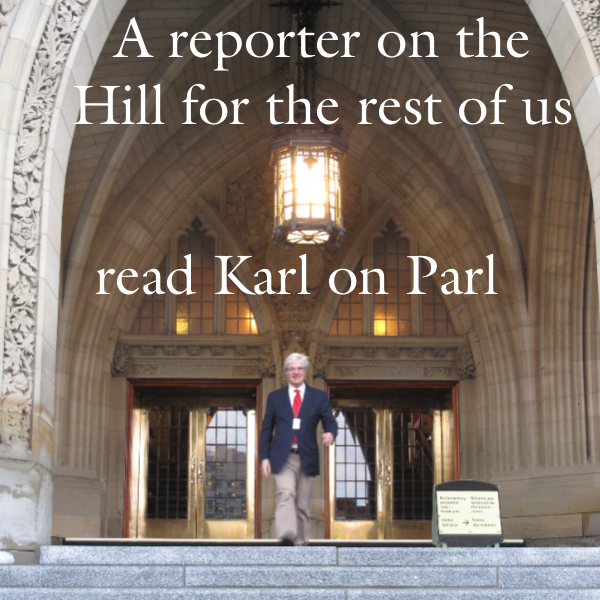Jim Flaherty, who so very recently retired as Finance Minister, died on April 10 of what is reported to have been a massive heart attack.
Parliament suspended its proceedings on Thursday afternoon on receiving the news.
Members from all parties expressed shock at the sudden death of the 64-year old Conservative politician.
Official Opposition Leader Tom Mulcair was in tears.
Flaherty was one of the trio of Mike Harris-era Ontario Conservatives Prime Minister Harper brought into his new Conservative government, in 2006. The others were Treasury Board Minister Tony Clement and Foreign Minister John Baird.
In Harris’ Ontario government, where Flaherty also served for a time as Minister of Finance, he was known as a low-tax, free market hardliner. That was a government that still called itself Progressive Conservative, and which still included folks who were at least a bit on the Red Tory side of things.
There are no openly Red Tories in Harper’s Cabinet, although some had hoped folks such as Rona Ambrose, Chris Alexander, Leona Aglukkaq and James Moore might provide a bit of centrist balance on a decidedly Tea-Party-ish team.
On the Harper team, Flaherty was, in fact, one of the least hardline and one of the most independent of mind and spirit.
Shortly before he stepped down, the former Finance Minister had gotten himself in trouble with the boss for expressing doubt about the Conservative promise to bring in income splitting for married couples with children. He expressed worry that, based on the evidence, such a measure would not be sound policy. It was refreshing to hear a Harper Conservative talk about facts and evidence.
Flaherty was also an active champion for more robust regulation of financial markets. He actively pushed for creation of a federal regulatory agency, and had achieved buy-in from at least some provinces by the time he left his job.
A number of other provinces, including Quebec, objected because they said they were already in the financial market regulation business, and did not appreciate federal interference in their domain.
Now, pushing against provincial rights is something the Harper government sometimes does almost with glee. Getting the federal government into a more active role in any kind of regulation is another matter, however. Securities reguation is not something Harper’s government would have tackled had Flaherty not made it his cause.
Many said when the former Finance Minister retired that his greatest achievement was in adopting Keynesian pump-priming policies in response to the recession of 2008. It is hard to give him too much credit for that, however, since his initial response was to pretty much do nothing at all.
The federal financial regulator, on the other hand, is an idea Flaherty pursued all on his own, without opposition prodding. He did so after — uncharacteristically for this government — seeking, and then heeding expert advice, both from inside and outside the federal public service.
Flaherty will also be remembered as an unlikely advocate on the Right for more generous fiscal measures aimed at disabled Canadians. On this issue he had a personal stake: one of his three children is disabled.
Being a parent of a disabled child himself gave the Conservative Finance Minister a measure of insight and empathy into the financial challenges that many Canadians must confront every day.
Flaherty’s Registered Disability Savings Plan not only contained a tax break measure, but grants of up to $4,500 for low income families. It is one of the very few pieces of compassionate social legislation the Harper government has enacted, an important part of Flaherty’s legacy
Most members of the rabble.ca community may not share Flaherty’s Conservative ideology — but I am sure they will join this writer in expressing sympathy and condolences to his wife Christine Elliott and his children for their all-too-sudden loss.



